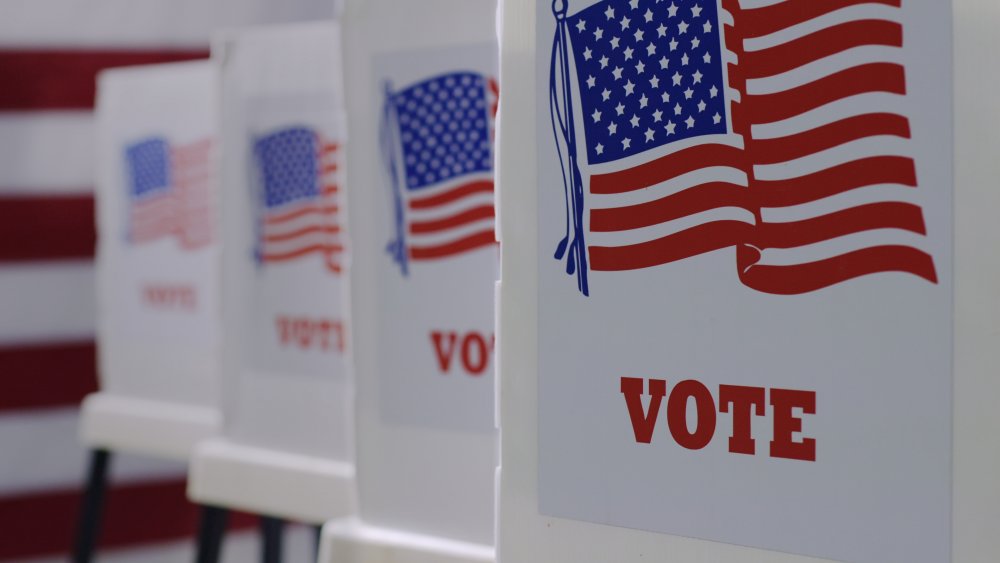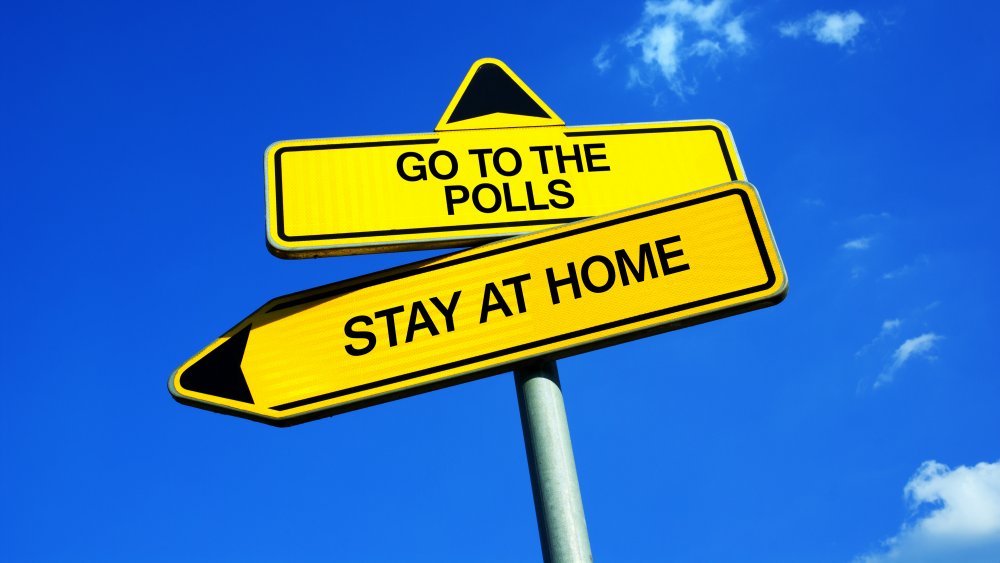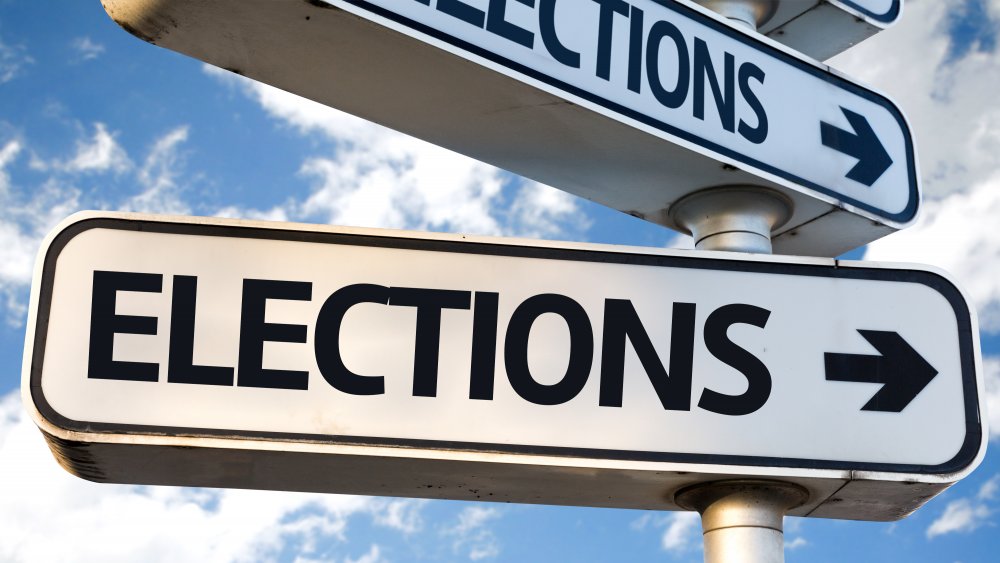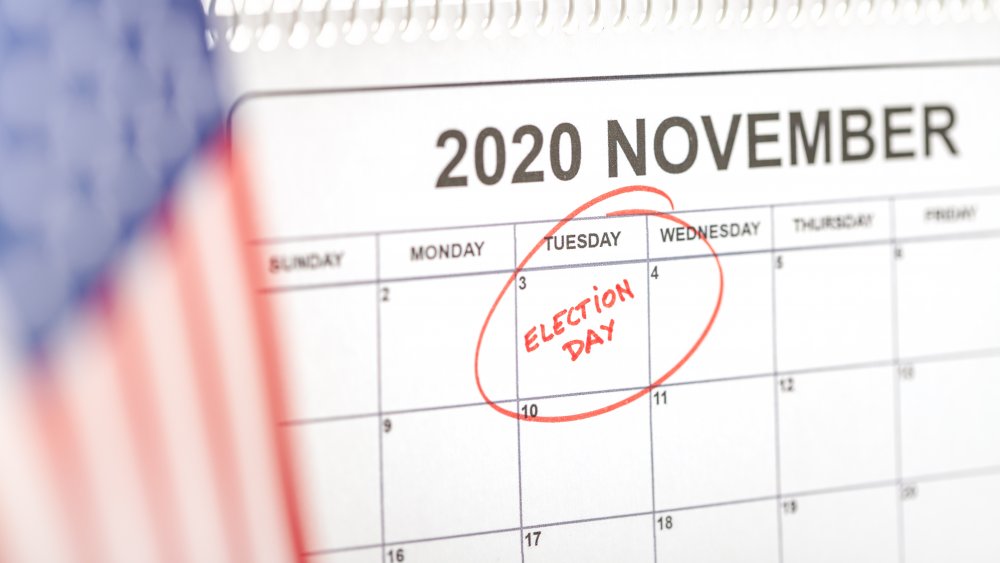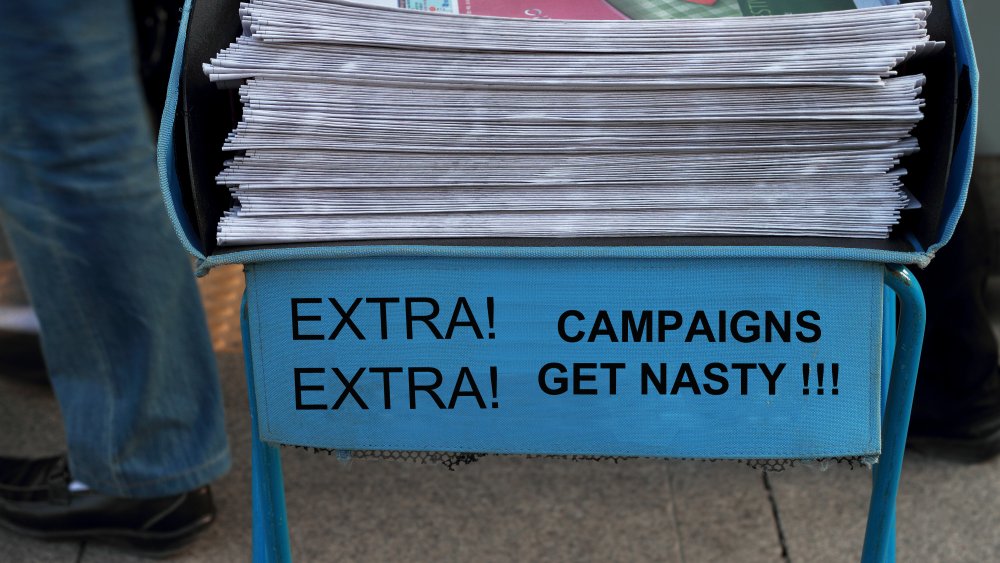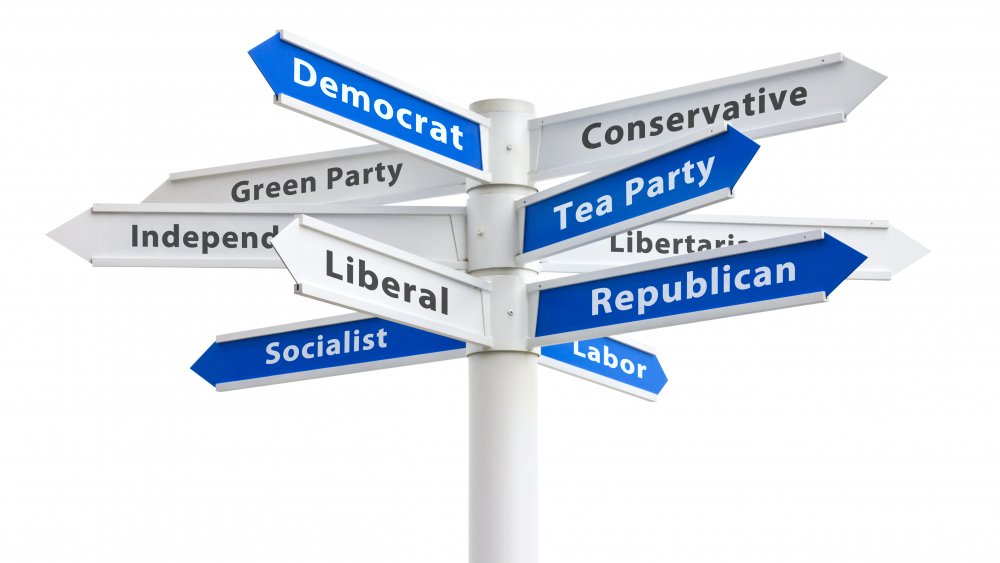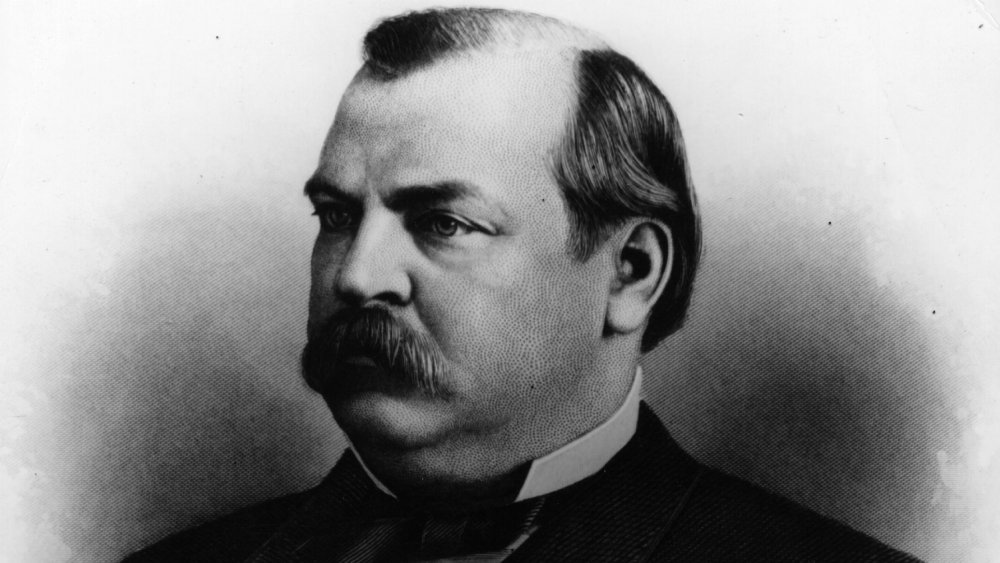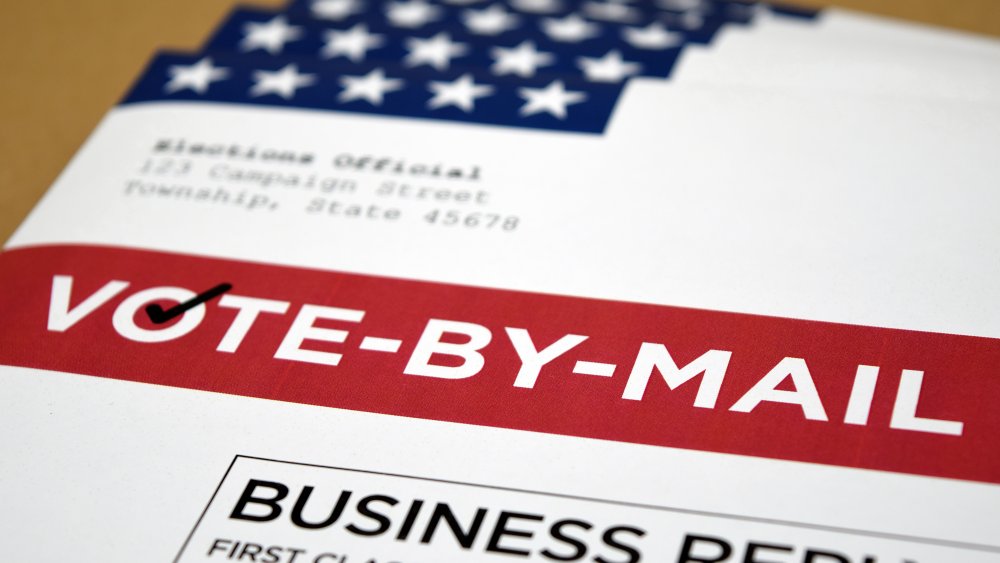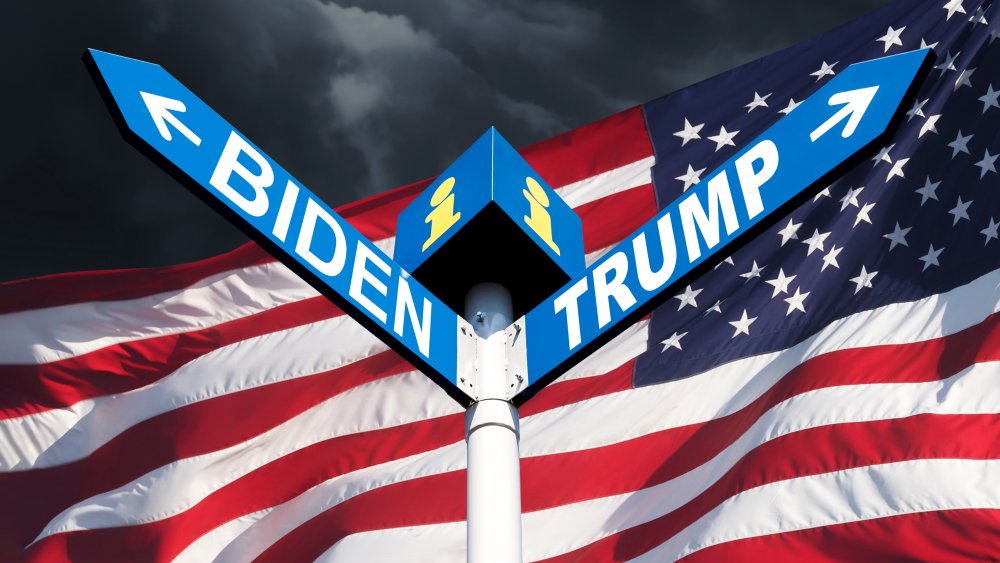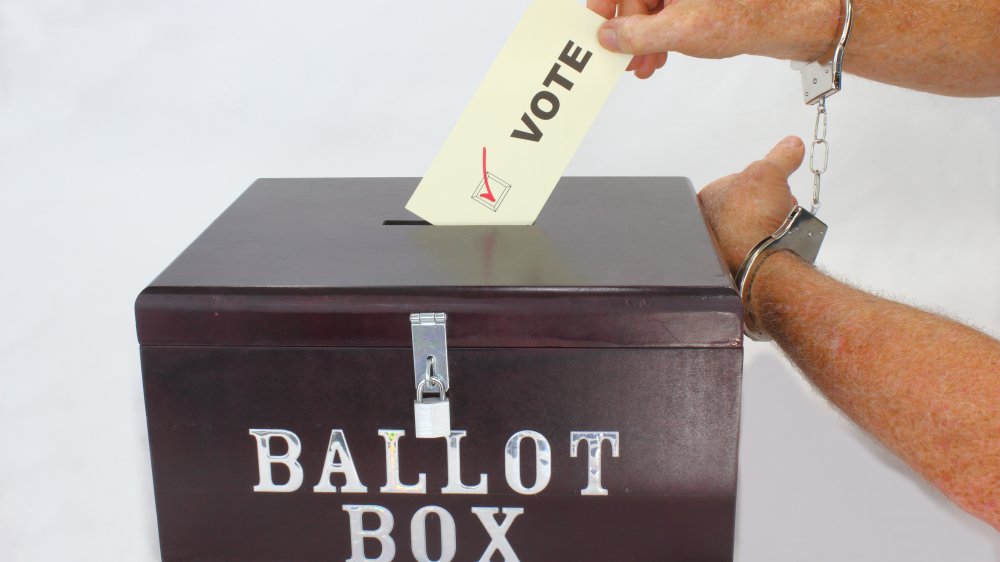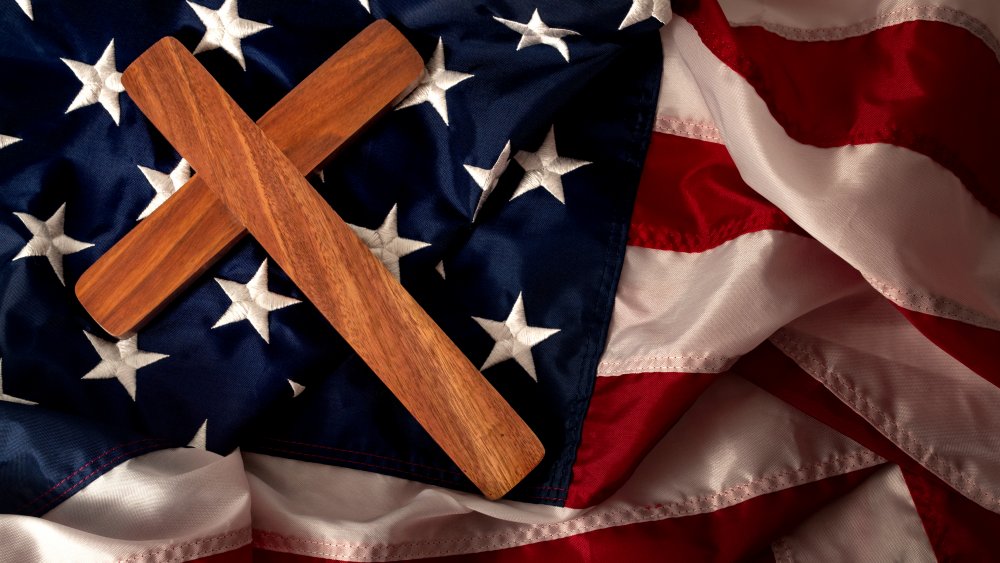False Things You Believe About US Elections
American politics is pretty popular across the planet. At least, you'd think so, given that a 2018 Pew Research Center report revealed that almost 50% of people in 38 countries say they closely follow news about the US. As the New York Times' The Australia Letter put it last month: "Australians [...] followed the ups and downs, marveled at the competitor, and tried to game out who would win."
Political comedy is big business in the United States and we are one of the very few countries in which political commentators are getting movie star-sized paychecks: Rachel Maddow gets $7 million a year, while Anderson Cooper gets around $12 million, and Sean Hannity is landing $100 million deals. One of the world's biggest TV hits in recent years was House of Cards, set entirely in and about Washington, D.C.
Even as American politics is absorbed as a spectator sport by so many hundreds of millions of people, there is still a lot that people don't know and even more that they falsely believe about US elections.
America has low voter turnout
It actually isn't as easy as you'd think to measure how many Americans turn out to vote. Americans have a lot of voting to do on the local level and given how different each state is from the next, there is no database of local election turnout nationwide. For national elections, however, there is a good deal of data and lots of seemingly bad news. So few Americans vote that for almost every single presidential election of the last 50 years, somewhere between 50-62% of all eligible voters turned out, per USA Today. If you noticed, we said "eligible" voters, not "registered" voters. America's registered voters cast ballots with far greater frequency.
In fact, according to Pew Research, America regularly sees registered voter turnout in the 80-90% range for the last 40 years. In 2016, that was higher than countries like Canada, France, and Switzerland. The only two European countries that achieved higher registered voter turnout are Luxembourg and Belgium. Unlike a lot of countries that have compulsory voting or automatic voter registration, the United States leaves it up to its citizens to register. So among OECD countries without compulsory voting, the United States actually ranks highest in voluntary turnout.
America's electoral process for sure has problems with things like poll access, voter suppression, and absentee ballot qualifications but the fact is that the overwhelming majority of Americans who register to vote can be counted on to cast a ballot.
Election Day is all about the presidency
American politics are crazy, drama-fueled, high-energy entertainment. The world has been fascinated by our politics since before there was even a country called the USA and with the bright, some might say gaudy, commercialization of presidential politics many Americans also forget that there is more to voting than the presidency.
According to Politico, there are around 120 ballot measures that voters in over 30 states have to decide on, covering everything from ranked-choice-voting to drug decriminalization to abortion. There's big money spent on these campaigns as well, with over $200 million for California's Prop 22.
Then there are all the very many local offices, bonds, propositions, judicial retentions, referendum, and other state or local specific items dotting states across the country. Depending on where they live, the average voter could be asked to choose from dozens of candidates for over a dozen separate positions and decide on issues mundane (should the local dog park be expanded?) and complicated (should property taxes be raised on older homeowners, offset by increases in inherited property, amortization of ... sorry, can't continue that) all at the same time. In fact, according to the American Bar Association's Human Rights Magazine, over-complicating ballot measure language is a tactic used by campaigners looking to pull one over on the public.
We vote in November
Everyone knows that every four years, on the first Tuesday in November, Americans go and vote. Which we do. But also in April. Sometimes January. Also, not just every four years. The point is, American politics is a lot more complicated than that and a lot of those local offices we mentioned above have their own, or at least separate, election days.
The average American citizen, according to political science professor emeritus at the University of Missouri John Petrocik, "can reasonably expect to be asked to vote for something almost every year, maybe more than once a year, for a wide variety of offices." Every four years we vote for president, one-third of the Senate, and the House, per the United States Senate. Then there could be a vote for governor, state house, and state senate (unless you're in Nebraska). Every two years we vote for the House again and possibly another US Senate seat (those happen every six years and every state has two), as well as state house again and whatever local positions or propositions may be up as well.
That many of these local-only elections, for mayoral or county seats, for instance, are staggered throughout the calendar year is actually partly responsible for driving down voter participation according to many researchers. As political scientist Zoltan L. Hajnal wrote in The New York Times about Baltimore's switch away from staggered elections, "Registered voter turnout went from just 13 percent in the last election before the switch to 60 percent in the first on-cycle election."
That elections used to be more polite
Of the many adjectives to describe the 2020 election, "civil" wouldn't be anyone's first choice. Lamentations over the vitriolic nature of our political discourse in the age of Twitter are practically their own genre of writing. Poisonous invective, hyperbolic dog whistles, or a divided and partisan media are not inventions of the 21st century. They're basically features of American politics because they've been with us almost from the beginning.
During the 1800 presidential election, a newspaper supporting Thomas Jefferson printed an editorial calling his opponent, and sitting president, John Adams, a "hideous hermaphroditical character." An Adams aligned paper warned voters that "murder, robbery [...] will openly be taught and practiced" if Jefferson wins.
As Smithsonian explains, in 1884, Grover Cleveland was accused of having an illegitimate child with a woman and locking her up in an insane asylum. LBJ scared the crap out of America by saying Barry Goldwater would straight-up start World War III. While Americans may say we want more congenial elections, our historical preferences suggest we kind of like it when they're jerks to each other.
There are only two parties in the United States
Hard as it may be to believe there were no political parties at the beginning of the Republic. In his farewell address, George Washington actually inveighed against them, portending that they would "subvert the power of the people and [...] usurp for themselves the reins of government, destroying afterwards the very engines which have lifted them to unjust dominion," according to the Washington Library. Just four years after that, two political parties dominated the 1800 election and would for each one thereafter.
Not the same two parties, mind you. Both of them are functionally extinct, the Federalists and the Democratic-Republicans, but they haven't just been replaced. They've been added to and even though most people aren't aware of it, America has far more political parties than just the Democrats and Republicans. In fact, every American voter in every state in 2020 will have not just two but three political parties on their ballot: Democratic, Republican, and Libertarian. According to Ballotpedia, Vermont and Colorado will each have over a dozen different political parties for presidential candidates on their ballots.
There are actually only 12 states that only have three political parties represented on their ballots for president. And then there are all of the local parties like the Alaska Independence Party or the ones that you hope to forget, yes really, are still around, like the American Nazi Party.
How many presidents there are
Politics can be confusing at the best of times. There's a lot of policy to know, institutions to navigate, and facts and figures to understand. But thankfully, some things are easy. For instance, Barack Obama was the 44th President of the United States of America. This means that Donald J. Trump is the 45th person to take the oath of office. Easy. Except ... he wasn't. He was the 44th.
Trump is the 45th president but there haven't been 45 different people as president. See, one guy went back for seconds, but he waited to digest it properly first. Grover Cleveland became president in 1885 but lost his bid for reelection four years later (becoming one of five candidates to win the popular vote but still lose). Undeterred, Cleveland successfully ran again in 1892. Technically, Grover Cleveland was America's 22nd and 24th president.
Which kind of makes sense but why isn't he just the 23rd president then? Presidential historian Jim Bendat, an authority on inaugurations, explained to Boston.com that, "Some historians didn't want the 22nd president appearing both before and after the 23rd, and also didn't want [President William] McKinley (who succeeded Cleveland's second term) to be numbered 24, making it appear he would have been after Benjamin Harrison."
Your vote doesn't matter
Only about half of eligible citizens actually register and go vote. And that's just for the big-ticket items like the president, governor, or congress. When it comes to local politics, which is where most of the elected offices are in this country, we see truly abysmal turnout. While there is no national tracking or database for most local positions, it appears that almost nobody actually votes on any of those local positions. Less than 15% of potential voters nationally cast a ballot for mayor, according to Portland State University's Who Votes for Mayor? project.
Which is insane because not only do local officers have far more impact on your daily life, but your vote has the greatest impact on their election as well. Most taxes, school policies, police procedures, criminal law, pollution restriction, and infrastructure maintenance — most of what most people think of as the government's responsibility — is decided on the local and state level, not in Washington, D.C. And a single vote goes a long way in these races.
NPR compiled a useful, but incomplete, list of the number of elections decided by a handful of votes, or even just one. From the New Mexico house seat won by two votes, to the Vermont senate primary won by a single vote, to the Alaska house race won by a coin toss, voting in every race matters.
Swing voters are moderate
"It don't mean a thing, if you ain't got that swing," isn't just a classic Duke Ellington jazz piece, it's also basically the mantra of armchair analysts every general election season. "The move to the middle." "Reaching for the center." "Appealing to the moderates." "Finding the independent voters." The importance of swing voters is clouded by the synonyms — like moderate or independent — that we use for them. Because swing voters are not moderates and swing states aren't in the middle.
In the face of overwhelming dominance by the Democrats and Republicans, it's important to remember that over 40% of Americans don't identify with either party. And 40% is a huge number; that's over 130 million Americans. As the FiveThirtyEight blog explains, "Moderate, independent and undecided voters are not the same, and none of these groups are reliably centrist. They are ideologically diverse." Swing voters can be rabid communists, die-hard anarchists, constitutionalists, or any range of single-issue voters. Swing states aren't packed with moderates either, CNN says, it's just that their partisans are more evenly distributed throughout the state.
And what even is a "moderate?" Depending on how you define it, there's all manner of ideological diversity stuffed in that label.
Every citizen is guaranteed the right to vote
American citizens are blessed with a number of inalienable rights, and protecting them is a chief priority for our government. Curiously, however, the right to vote necessarily isn't among them.
In the United States, voting is handled by the actual states themselves, instead of the federal government. As Voice of America explains, we have less of an election for president and more like 50 individual elections for president. This is why the federal government's role in US elections has traditionally been relegated to merely preventing the most egregious abuses, for instance, through passing the 15th and 19th amendments which outlawed states denying the right to vote based on race and sex.
Absent outright violations of established law, states are entirely free to regulate voting as they see fit and many of them do. As the Brennan Center for Justice describes, "states have put barriers in front of the ballot box — imposing strict voter ID laws, cutting voting times, restricting registration, and purging voter rolls." States can also just revoke the right to vote entirely. The ACLU estimates that almost 6 million Americans with felony convictions are prevented by state laws from voting. In three states — Iowa, Kentucky, and Virginia — getting convicted of any felony will permanently bar you from voting in that state.
Polls predict elections
While 2016's globally famous failed polling predictions in Britain's Brexit and the US presidential elections raised red flags about the efficacy of polls, pollsters have known this for years. As the American Association for Public Opinion Research reports, industry leaders have been soul-searching and innovating around their problems but they still face people demanding that research firms give better predictions.
Of course, as Stanford political scientist David Brady explained to Stanford News: "One thing polls are unable to accurately measure is voter turnout." After being one of the very few people to accurately forecast Trump's win, American University historian Allan Lichtman put it more bluntly to NPR, "Polls are not predictions, and they are abused and misused as though they were predictions 'cause they're easy to cover.
Polling isn't as simple as just calling random people and reporting the results in percentages. It's an extremely complicated process involving several layers of statistical formulas. And the more complicated a process is invariably correlates with how easy it is to screw up. Who is polled, at what times, in what parts of the country, on cell phones or landlines, of what age/race/religion/education/family type/political orientation/etc., voting history, and more are all important in getting representative samples for a poll. The methodology in choosing who to call, what to ask them, and how to interpret the results can lead to bias and error and frequently does.
Money determines who wins elections
If there's one thing everybody knows about American politics, it's that having money gets you elected and you have to keep raising money or you'll never stay in office. It's why, as reported by The Hill in 2016, that "both parties have told new members they should spend 30 hours a week on calls." Fortunately, while it is true that running for office is expensive — according to the Campaign Finance Institute, the average cost of a U.S. House race in 2016 was over $1.5 million — it doesn't determine who wins the election.
Running for office really requires only one thing: a way to get your message out there. And you need money to pay for lawn signs, ads, mailers, stamps, and all the other assorted mediums candidates use to get their name and message out there. Money can definitely be a deciding factor because, according to University of Florida political science professor Suzanne Robbins, "Candidates can prove their viability" to donors and voters with strong fundraising.
Newt Gingrich had great backing in 2012 and he didn't make it out of the primaries. Hillary Clinton outspent Donald Trump in 2016. Michael Bloomberg spent a billion dollars in a failed bid for this year's election. Money definitely helps candidates get started or stay in the race, but it doesn't always carry them across the finish line.
America is a right-wing outlier
From guns to climate change, America is seen by many people around the world, as well as plenty here at home, as a kind of right-wing bastion. That among developed democracies the United States stands apart politically does have a certain amount of truth to it, but the reality is that America is far less conservative than most people realize.
A key characteristic of liberal societies is tolerance and in this America shines brighter than most of the world. Not only do a solid majority of Americans (63%) think that immigrants are good for the country and think the country should accept more of them, per the Migration Data Portal, but over half of Europeans feel precisely the opposite. As of 2019, Canada is the only nation that resettles more refugees than the United States, according to Pew Research.
Not to mention, the US still ranks higher in gender equality than most of the world, including Greece, Italy, and Japan. Not only is gay marriage legal in every state. but 63% of the general public is in favor of it. Even the most conservative US state's abortion laws pale in comparison to the stricter laws in EU members like Ireland and Poland. We may be outliers in things like health care, but in many ways, the US is already one of the world's most progressive nations.
